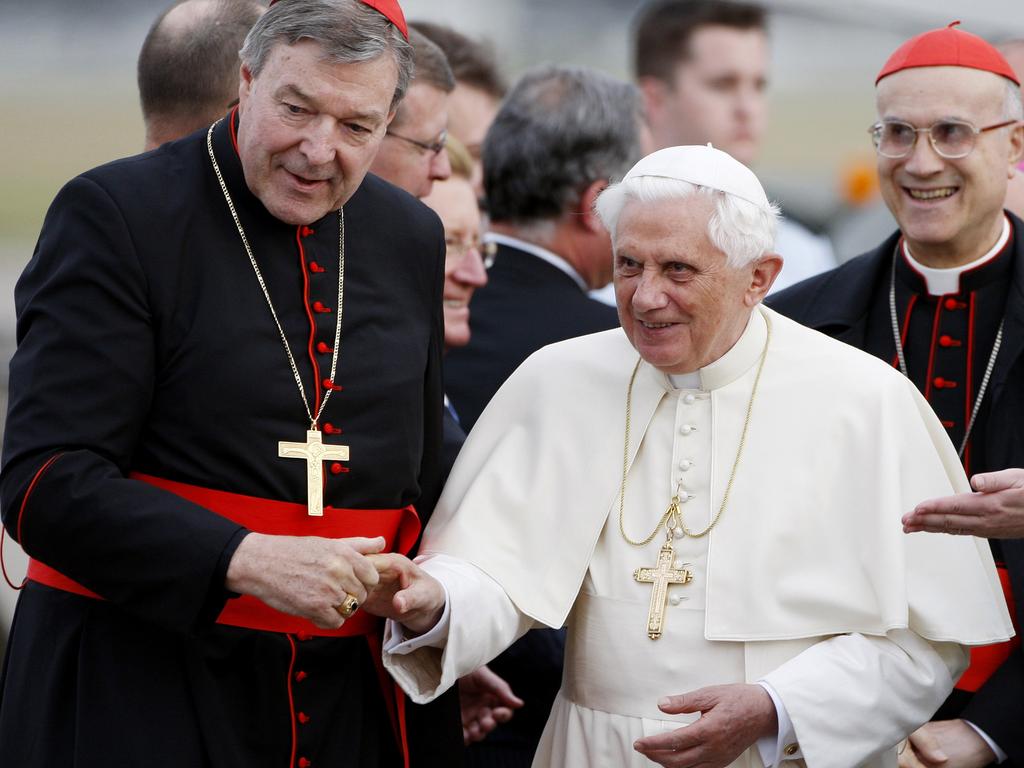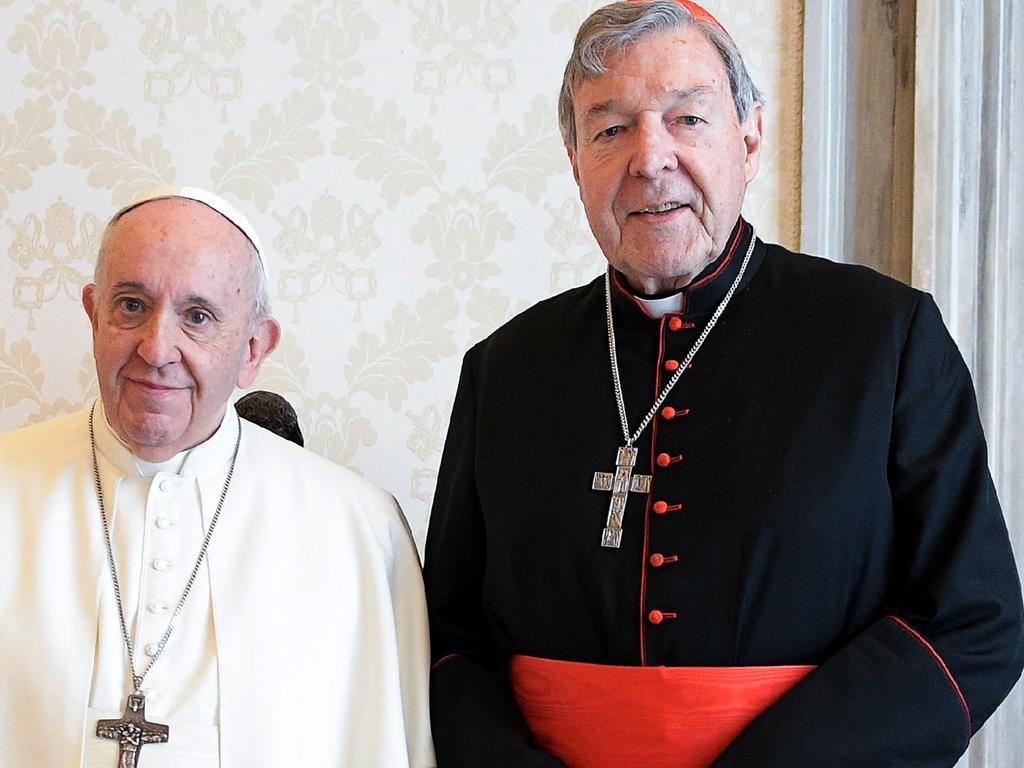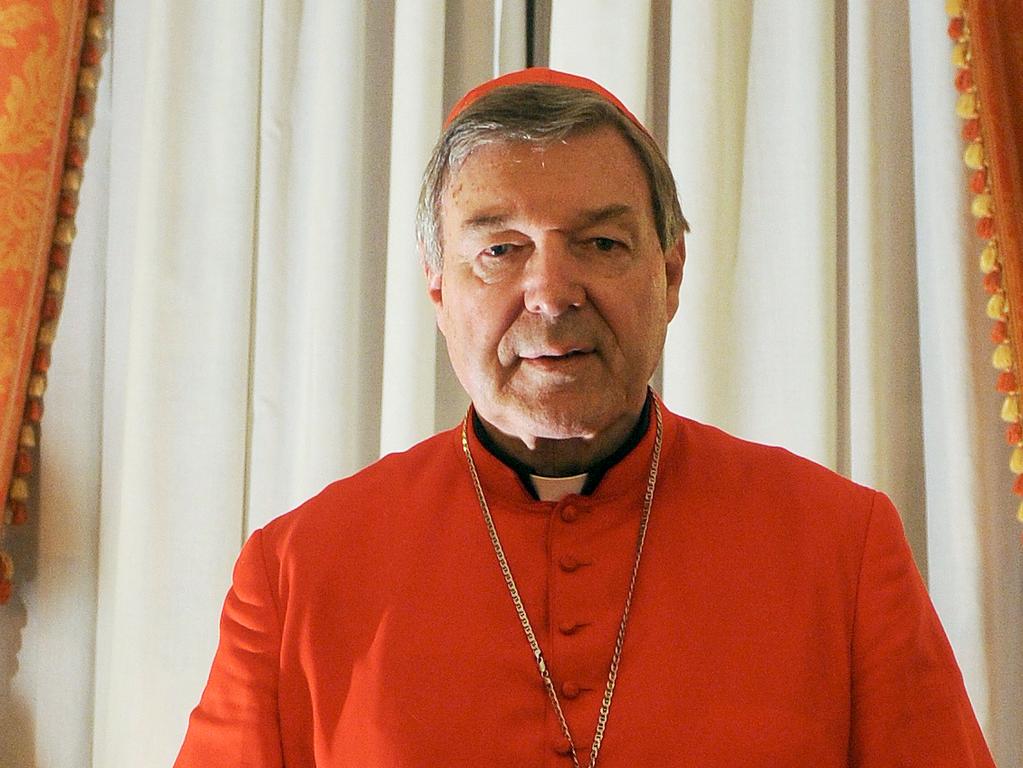Pell’s attackers have always been wide of the mark
The deep antipathy to the late cardinal went further back than the unjust sexual abuse charge and his subsequent imprisonment.

He did not suffer fools gladly, and he had an acute character antenna for sophisticated fakery. But I can hear the scorn now. “Well he was a convicted pedophile!” the anti-brigade will splutter.
Well yes, but unfortunately for them, especially Louise Milligan and the rest of the ABC gang, the cardinal’s conviction was unanimously overturned by the High Court, which noted the significant possibility that a person had been wrongly convicted.
However, the deep antipathy to Pell went further back than the unjust sexual abuse charge and his subsequent imprisonment. Nor was it solely the preoccupation of the ABC and the left media.
There was, and still is, a cabal within the church that wants to remake the rock of Peter in its own image of modernity, frequently using the language of “relevance”, which translates as some vague compromise with the values (or lack of) in the secular world. This mob always claims authority from changes to the church outlined by Vatican II, but is completely intolerant of anyone, even in post-Vatican II authority, with the intellectual heft to put a brake on their vision.
I am reminded of the sneer in the rising inflection of a person who told me that there was to be a new archbishop in Sydney, some “real conservative” from Melbourne. That an archbishop is conservative didn’t seem to me at the time to be so astonishing. However, this former teacher at a Catholic school didn’t even know Pell’s name, but apparently the tag “conservative” was code for something sinister – like the ridiculously titled essay by David Marr, The Prince – although it was hard to find a person less like a “prince” of the church – or anywhere else –than the former AFL player Pell.
As archbishop and cardinal, Pell did not tolerate an accommodation with secularism which would undermine the very foundations of the Catholic Church’s moral authority, as other branches of Christianity have done to their detriment. Nor, however, did he tolerate the idea of the church as having either “left” or “right” wings. And above all, he was a formidable personality.
There is no doubt that the personal antipathy towards him as a “conservative” both within and outside the church added to the frenzy of the witch hunt to pin some blame on him for the general problem of clerical sex abuse which preceded the conviction. Anyone who doubts this should read the transcript of the Victorian inquiry into sex abuse which preceded the commonwealth’s royal commission.
The grilling of the cardinal in that farcical Victorian preliminary to the royal commission intimated every nefarious deed from using the Melbourne Response, a pioneering compensation scheme, as a ploy to hush up sex abuse, to using church funds to build himself a palazzo in Rome.
In fact, the Melbourne Response was the first real attempt anywhere in the world by the church to address the grievances of victims, and as for the “palazzo”, it is a renovated convent and chapel for Australian pilgrims.
The cardinal’s attempts to address the problem directly with the compensation of the Melbourne Response was never going to be good enough, as the subsequent media circus surrounding the royal commission showed.
Despite already having appeared before the royal commission, and in ill health, it was put about that he had refused to be questioned. Pursuing Pell to Rome was a PR stunt meant to make him seem guilty of something, anything, with the ABC gleefully drumming up the persecution to the extent of broadcasting satirical songs.
However, it was just the opener for the main act: the direct accusations against him broadcast on the ABC’s 7.30. The supposed nefarious past deeds in a swimming pool were later thrown out at his trial. Meanwhile, Milligan published a book with more serious repercussions. By this time, in much of the public consciousness he was set up as “the boss” and the personification of clerical sex abuse.
At the time the police “investigation” was under way, I had lunch with the cardinal in his apartment in Rome. He had an almost naive faith in the Australian justice system, and told me that he had more problems from “the clowns” in Rome than trumped up charges in Victoria.
Despite this, detectives were accusing him of stuff he couldn’t physically have committed when he was not even in the country, and at one point he had to get his passport out to prove it.
Eventually, the investigation became farcical. The office of public prosecutions refused to prosecute a case with no evidence on the word of one complainant.
But that didn’t stop the Victorian police from prosecuting Pell themselves, because public antipathy had reached a point where they felt they could get a guilty verdict, which they did despite numerous witnesses giving evidence that contradicted the prosecution’s case.
The end to the fiasco, for which the cardinal spent a year in jail, was of course his eventual exoneration on appeal to the High Court.
Yet many of us who admired his courage didn’t feel he was exonerated. Many of us, myself included, felt he should have taken legal action against his persecutors, especially the ABC. Instead, he bore it all with great dignity.
However, he should have been more vigorously defended by his own Catholic people, both lay and clerical. Instead, some of his most outspoken supporters, including John Howard and Amanda Vanstone, were not Catholics; they simply saw him as he was – a transparently good man.
Katrina Lee, a former respected television journalist was the only person who sat through all his trials and had the courage to support him through the baying mob.
She said this of him: “I was a friend of the cardinal’s for more than 15 years, I knew him as a man of rock-solid faith, a dedicated priest, a down-to-earth proud Australian. He was blessed with a wonderful intellect, courage and humility. He was comfortable talking with heads of state or the homeless.
“His temperament, grace and dignity under extraordinary pressure was prodigious. A voracious reader, he could discuss such a wide range of subjects while many who met him were surprised by his keen sense of humour.
“I often witnessed his acts of compassion and charity, undertaken quietly and without fanfare. Pell was a great church leader who lived by his motto Nolite Timere – Be Not Afraid. A good and faithful servant, a good and faithful friend.”







It is fair to say that a lot of people didn’t like Cardinal George Pell. I am not sure why, as my brief encounters with the man were perfectly pleasant.